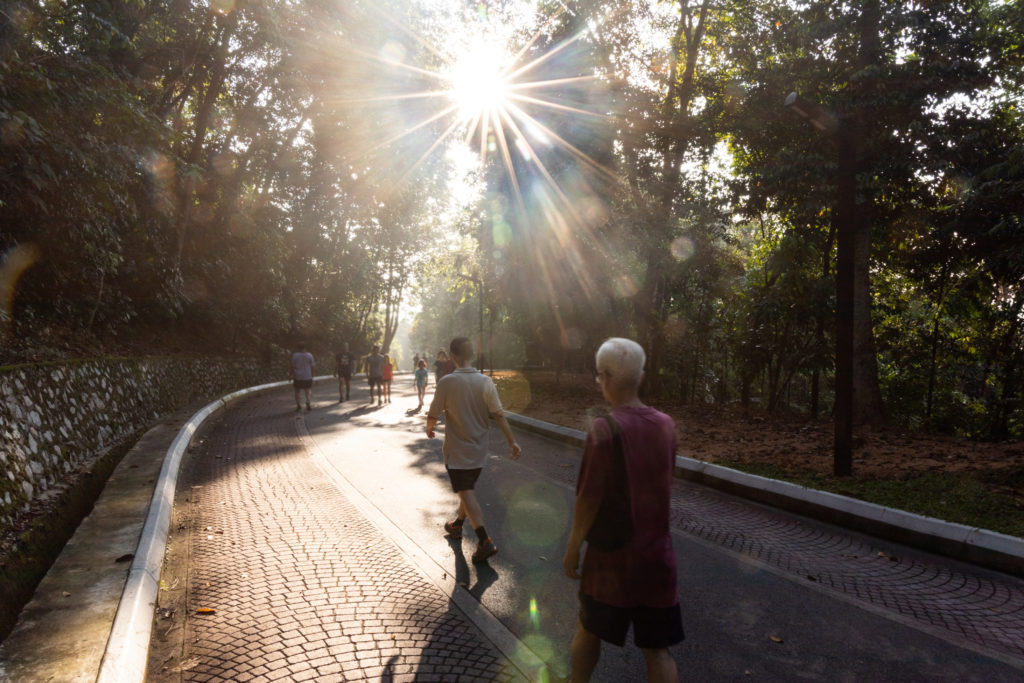Quick Hits
Daily brief research updates from the cognitive sciences

In the quest for fitness and health there has been a focus on exercise as a key factor – we all know that. And recommendations are normally about increasing heart rates over long periods of time or possible also shorter more intensive sessions. These have also been shown to improve cognitive function – making your brain more effective.
However, the route to greater health may be easier – or more specifically of enhanced brain function. The effects of light activity in the focus on more intensive and extensive exercise has been largely underestimated – and is considered by some to be a key factor in public health. Our engagement in light activity has over the decades decreased significantly – see my previous article here.
In this research just out Ryuta Kuwamizu and colleagues of the University of Tsukuba in Japan conducted a simple but effective experiment. In this participants did 10 mins of easy exercise – in this case light pedalling while seated. During this they measured pupil dilation because this is also related to brain function specifically executive function. Executive function refers to harder cognitive tasks such as decision making, short-term, memory, calculation, and analysis – basically what many consider the heavy lifting of the brain in our daily lives.
Yes, and indeed just this short light exercise intervention increased delation of the pupil and this was directly related to improved executive functions which was determined though scanning the frontal part of the brain where our executive functions reside with a technique called near infrared spectroscopy.
This therefore points to, as I have mentioned in other places, the significant benefits of short bouts of light exercise on improved brain function – something of particular interest to businesses no doubt. I have long since promoted the idea of regular short walking breaks – this shows again why. For a review of the benefits of walking see this article here).
Not that it has to be at work – a walk or light exercise will improve your brain function – and that is good for all of us, all the time.

Andy Habermacher
Andy is author of leading brains Review, Neuroleadership, and multiple other books. He has been intensively involved in writing and research into neuroleadership and is considered one of Europe’s leading experts. He is also a well-known public speaker, speaking on the brain and human behaviour.
Andy is also a masters athlete (middle distance running) and competes regularly at international competitions (and holds a few national records in his age category).
References
Ryuta Kuwamizu, Yudai Yamazaki, Naoki Aoike, Taichi Hiraga, Toshiaki Hata, Michael A. Yassa, Hideaki Soya.
Pupil dynamics during very light exercise predict benefits to prefrontal cognition
NeuroImage, Volume 277, 2023.
https://doi.org/10.1016/j.neuroimage.2023.120244
More Quick Hits
Behaviour at eight helps predict midlife health behaviours
A long-term study in Finland has tracked children from the age of eight until the age of 50 and a new analysis of the data, just published, has looked at some of the correlations between socioemotional behaviour in childhood and later life achievement and health...
Psychedelics and consciousness
Psychedelics change our conscious experience of the world – that is part of their attraction. Now a new study out of John Hopkins Medicine has analysed data on attributions of consciousness to other animals and innate objects by those using psychedelics and how this...
Lower smartphone usage increases wellbeing
So much has been said about smartphone usage in modern times. This ranges from some who say that they are destroying our brain to others who see they benefit our cognition by outsourcing cognitive heavy tasks like remembering lists of phone numbers – thereby freeing...
Modesty preferred for cooperative teams
In an age where it appears that many people are vying for self-esteem especially through social media, this research is interesting. Particularly in business contexts where cooperation is king. Research has previously shown that appearing to be wealthy increases...
Poverty shrinks babies’ brains
Quick HitsDaily brief research updates from the cognitive sciences couple of studies have just been released which look at the brains of newborns and young babies. The results are worrying for any society. Brain scans of newborn babies from...
Babies born with five from seven functional brain networks
In the 1950s the blank slate theory was the most prominent theory ascribed to babies. They are born blank slates and then their experiences allow them to develop their networks thoughts, associations, etc., and just about everything else. Though this theory is long...






